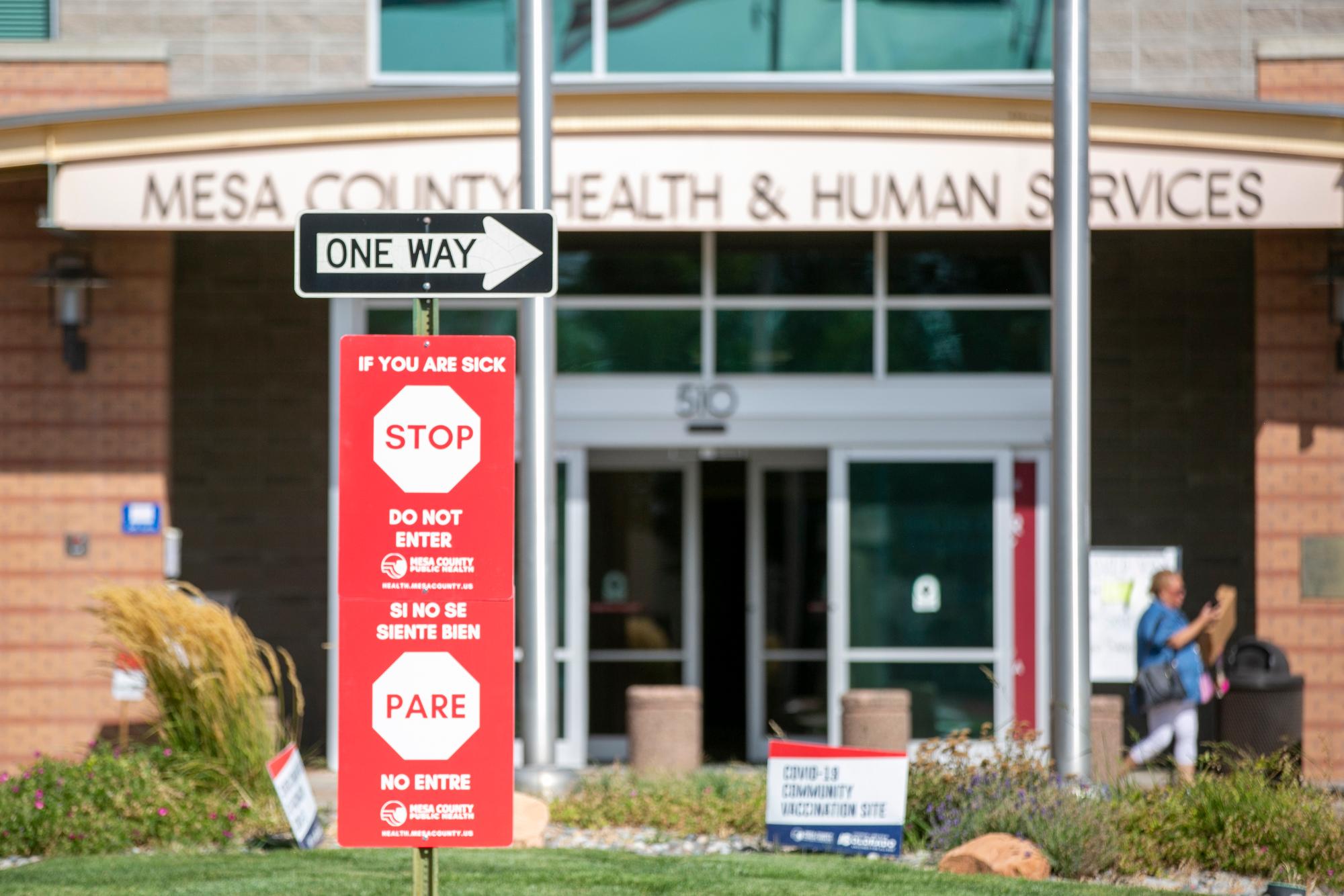
Mesa County GOP head Kevin McCarney knows how dangerous the coronavirus can be; he’s had a couple friends with serious bouts. One of them just got out of the hospital.
“He was on a ventilator, had to have a tracheotomy and everything,” McCarney, 60, said. “So I know it's real.”
But McCarney, who’s one of the main political players in this deep red region, doesn’t like the official response to the pandemic. He wants people to return to a sense of normalcy, and he’s skeptical of the medical establishment. He thinks the focus on vaccines is largely driven by the pharmaceutical industry, out to make money, he thinks that officials are overlooking other approaches.
“I always joke that I rattle when I walk, from all the supplements I’m taking,” McCarney said. “I've never had a flu vaccine, I try to take care of myself... and keep my immune system up, because that's the secret to success.”

Health officials urge people to get vaccinated not only to protect themselves, but to prevent the continuing spread of the coronavirus. Around 80 percent of Coloradans over age 12 have received at least one vaccine dose. But in Mesa County, the rate is much lower; only around half of the eligible population is vaccinated.
At the same time, COVID rates have soared in Mesa County, 21 people there have died of the disease in the past two weeks. And hospitals in the area are at or near capacity, with about 96 percent of ICU beds full. According to the local public health agency 82 percent of the COVID patients in those beds are unvaccinated.
But McCarney is suspicious of the idea that Mesa County’s hospitals are filling up.
“I think sometimes we get exaggerated numbers (for) hospital capacity,” he said. “There's more people in the hospital, maybe because of flu, which, you know, nobody wants to report the numbers of that because we’re all focused on one thing.”
In response to emailed questions from CPR News St. Mary’s Medical Center in Grand Junction said the hospital has a surge plan in place if it becomes necessary to increase capacity.
"Like many hospitals across Colorado St. Mary’s Medical Center is seeing an increase in patients hospitalized with COVID-19, and we are seeing an increase in patients seeking treatment who have greater health challenges due to delaying care," wrote a representative from the hospital.
"Our team has done an outstanding job to care for our COVID-19 patients and other patients who need our care throughout our response efforts. The ask of our community remains the same. Please be proactive about helping us to ensure hospital beds are open to those in our community who need them."
However, this distrust of hospital numbers also came up in interviews with other Republicans in Mesa County, both elected officials and active party members.
“They're saying that our hospitals are at capacity. They're not at capacity; they're understaffed. They were understaffed before COVID,” said Nova Tucker, a political activist.
Tucker is a staunch opponent of vaccine mandates and feels the entire pandemic situation from the start has been government overreach.

“I'm sorry, the government's not responsible for my health,” she said. “They're responsible to guard my freedom.”
Mesa county commissioner Cody Davis has been one of the few local Republicans to strongly encourage vaccination, even getting his vaccine dose live on local television. He said he is concerned that the county’s hospitals are full in part because it makes people fearful and might keep visitors away, and he hopes more people do get the vaccine.
“I think people should absolutely consider doing it,” he said.
“I think it slows the spread for sure and it creates the public health that we need. That being said, I think it should always be a person's right to choose whether or not they get that vaccine. I think mandates have kind of the unintended consequence of people resisting and losing trust in government and things like that.”
A recent survey on unvaccinated people in western Colorado found for many, their views are based on distrust of government. The San Juan Basin Public Health Department commissioned the survey from RBI Strategies. It showed that only one-third of those who responded were open to the idea of getting vaccinated in the future, but still needed more information to be persuaded — especially about their personal risk.
“A substantial proportion of participants appear unreachable through either persuasion or mandates. Prescriptive messages should be avoided, as the unvaccinated are highly suspect of attempts to ‘sell them on the vaccine,’” states some of the findings.
Amanda Maley with Mesa county public health said the county recently launched an instagram campaign to try to reach unvaccinated people in their 20s.
“Here in Mesa county, we do struggle with a low vaccination rate and high case counts,” she said.
The county continues to run vaccine health clinics and send out health alerts.
“Letting people know that hospitalizations were increasing. And as we go into this holiday period, where folks have the tendency to gather in larger groups, to really have that layered approach. We're right at a time where influenza is also going to become a factor.”
But for Mesa County Public Health Department officials, hoping to reach those people who are unvaccinated and find a message that will overcome all the doubt and distrust, isn’t easy. And the survey results say public health officials may never persuade many of the unvaccinated, no matter what approach they try.









